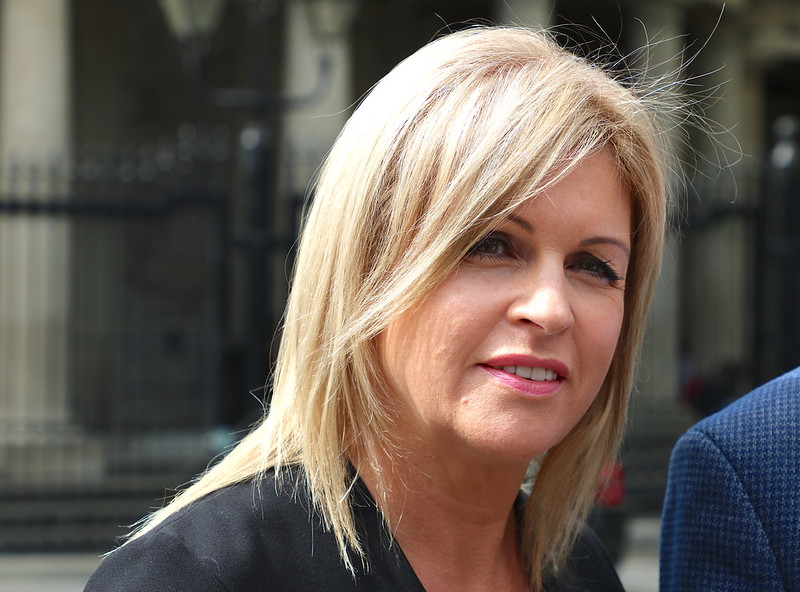Sinn Féin’s Higher Education Spokesperson Rose Conway-Walsh today criticised the government’s decision to charge students full fees during the coronavirus pandemic.
In an interview with The University Times, streamed live on Instagram, Conway-Walsh argued that payment of full fees by students in a predominantly online academic year means students are not getting back what they paid for.
Conway-Walsh said that the costs and challenges facing students during the coronavirus pandemic “feeds into the chronic underfunding of educational institutions”.
“With the establishment of the higher education department we have a real opportunity here to fundamentally change higher education and fix the things that are broken in it, particularly in relation to access and equality of access, but also education as a public good.”
“We need to look at education differently. It’s becoming more and more of a commodity so that universities are dependent on commercial income rather than being funded as a public good by the State and I suppose that’s how Sinn Féin would differ in its approach.”
In its 2020 general election manifesto, Sinn Féin pledged to abolish third-level fees and increase the student maintenance grant by 10 per cent. The party’s costings estimate that abolition of fees would cost €243 million.
Reacting to news that the Department of Higher Education plans to publish legislation to drastically reform higher education institutions governance structures this year, Conway-Walsh said: “I think everything should be looked at. I think this is an opportunity to examine things but what I would caution against is not fixing things that aren’t broken”.
“I think it’s very important to have governance legislation and I think that there needs to be a uniformity but not to an extent where you are fixing things that aren’t broken in the first place and I think we need to hear all voices around this.”
On the topic of remuneration for student nurses and midwives on placement, Conway-Walsh cited Sinn Féin’s motions in the Dáil in support of paying student nurses and midwives as evidence of their support.
When asked whether any payment introduced should continue after the coronavirus pandemic has ended, Conway-Walsh responded: “Oh no for sure it would, it’s just that the pandemic has really highlighted it.”
“When we’re clapping for frontline workers are we clapping for everybody else except student nurses? It’s not right, but it would continue on after the pandemic because the work is still there to be done. The very least we can do is pay people who are working so hard within the system.”
Regarding sexual assault on campus, which Higher Education Minister Simon Harris has described as an “epidemic”, Conway-Walsh said that Sinn Féin would “resource the students’ unions better and you resource it so you have specific personnel on campus that can provide support”.
On whether remote learning has a future in higher education, Conway-Walsh said she does think remote learning has a place but “if we had the vaccine rollout in the way that we need it here that things will change for students.”
“My concern would be that this experience that students have had wouldn’t continue into the rest of their learning and into their work lives”.
When asked about what type of provost should be elected in Trinity this year, Conway-Walsh instead reflects on her meeting with current Provost Patrick Prendergast. Describing the Provost as someone who is “very open, to really value equality and equality of access to Trinity.”
“I think when you’re starting off with an ethos from that point of view I think you’re on the right road.”







